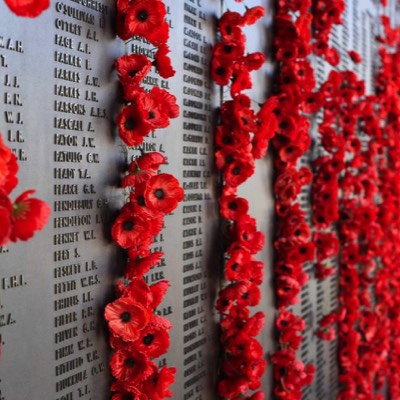The Power Of Love
Like so many other things, Anzac Day will this year will be very different. However, while we may have to change the way we celebrate this day, the truths behind it do not change. Jesus said, “Love each other as I have loved you. Greater love has no one than this, that he lay down his life for his friends” (John 15:12-13).
The Anzac tradition illustrates this truth. The Anzac tradition began in the real stories of men and women who were willing, and did, lay down their lives for others. Not because of orders coming down from above, because you can’t order someone to love. They did it because these were their friends, their comrades, because they had fought side by side, and because they knew their mates would do the same for them. That is what friends do.
Some years ago there was a Vietnam veterans event at the Wall of Remembrance at the War Memorial in Canberra. People came from all over the country. One interstate traveler, when asked why he had come so far, replied with tears flowing down his cheeks, pointing at a single name written on the wall, “Because of this man right here.” As he continued to speak, his finger traced the letters of his friend's name. “This man gave his life for me.” So many years later he was still moved to tears. This is the power of sacrificial love.
We’ve just celebrated Easter. Easter is about Jesus, in love, laying down his life for us. Not because we were his friends or particularly deserving. The bible puts it this way, “God demonstrates his own love for us in this: While we were still sinners, Christ died for us” (Romans 5:8).
What does that mean? A few years ago the NSW Bible Society received the donation of a copy of the New Testament and Psalms that once belonged to Lance Corporal Elvas Jenkins, from Ararat in Victoria. Jenkins landed at Gallipoli on the 25th April, 1915 carrying this New Testament in his top pocket. A few days later, a shell exploded near where he was working and he was struck in the chest by a piece of shrapnel. The shrapnel went through the back cover of his New Testament, through the Psalms, through rest of the New Testament, and came to a stop when it hit the Gospels - the story of Jesus. I find the symbolism very powerful. Death came to a stop when it encountered Jesus.
On Anzac Day we remember the very best that people are capable of, the greatest love, and are inspired by it to be better people. But Anzac Day also points us towards Jesus, who gave his life for us. By his death, he has conquered death so that, when we trust him, we can live.
Neil Percival
The Anzac tradition illustrates this truth. The Anzac tradition began in the real stories of men and women who were willing, and did, lay down their lives for others. Not because of orders coming down from above, because you can’t order someone to love. They did it because these were their friends, their comrades, because they had fought side by side, and because they knew their mates would do the same for them. That is what friends do.
Some years ago there was a Vietnam veterans event at the Wall of Remembrance at the War Memorial in Canberra. People came from all over the country. One interstate traveler, when asked why he had come so far, replied with tears flowing down his cheeks, pointing at a single name written on the wall, “Because of this man right here.” As he continued to speak, his finger traced the letters of his friend's name. “This man gave his life for me.” So many years later he was still moved to tears. This is the power of sacrificial love.
We’ve just celebrated Easter. Easter is about Jesus, in love, laying down his life for us. Not because we were his friends or particularly deserving. The bible puts it this way, “God demonstrates his own love for us in this: While we were still sinners, Christ died for us” (Romans 5:8).
What does that mean? A few years ago the NSW Bible Society received the donation of a copy of the New Testament and Psalms that once belonged to Lance Corporal Elvas Jenkins, from Ararat in Victoria. Jenkins landed at Gallipoli on the 25th April, 1915 carrying this New Testament in his top pocket. A few days later, a shell exploded near where he was working and he was struck in the chest by a piece of shrapnel. The shrapnel went through the back cover of his New Testament, through the Psalms, through rest of the New Testament, and came to a stop when it hit the Gospels - the story of Jesus. I find the symbolism very powerful. Death came to a stop when it encountered Jesus.
On Anzac Day we remember the very best that people are capable of, the greatest love, and are inspired by it to be better people. But Anzac Day also points us towards Jesus, who gave his life for us. By his death, he has conquered death so that, when we trust him, we can live.
Neil Percival
